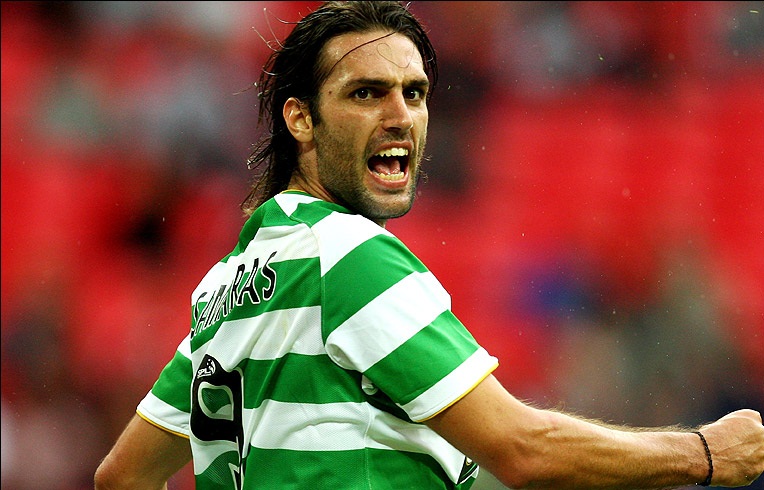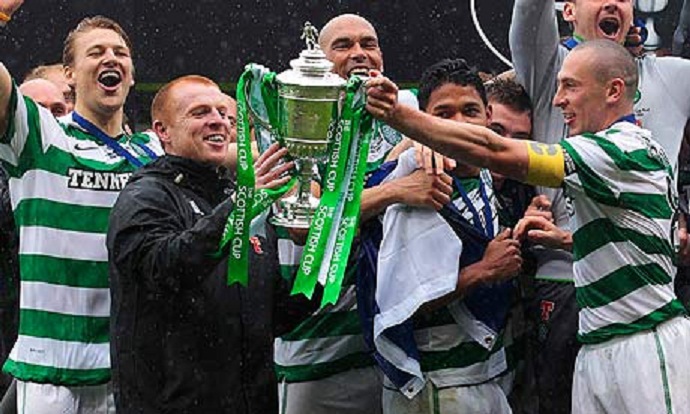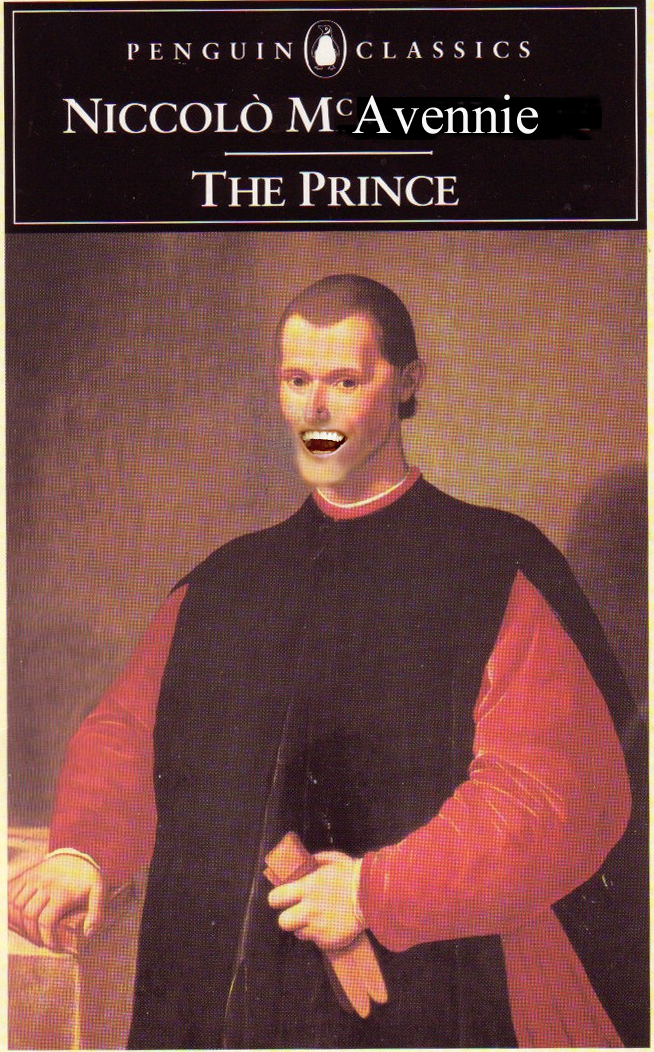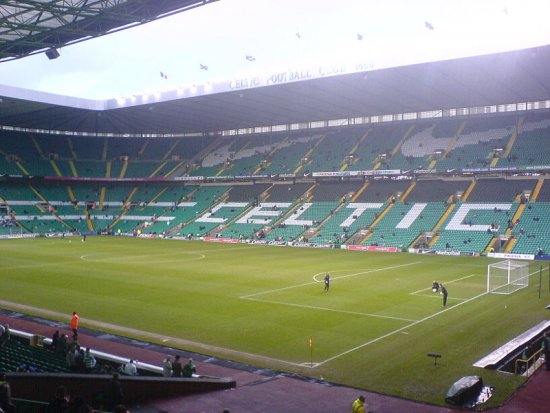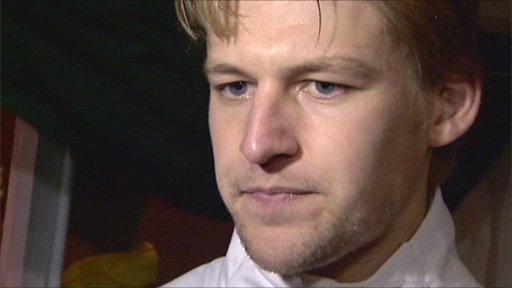Firstly, the continuing acceptance that Samaras will never score enough goals for a striker. He scored six goals this season, far less than Hooper and Stokes, but more damningly, less than Charlie Mulgrew. Supporters are beginning to judge Samaras on his ability, rather than his goals. He has added an element of consistency that has been lacking throughout his whole career, not just during his time in the hoops.
Samaras has often been deployed on the left, as neither an out and out winger or as part of a three man attack. In the same way that Commons was given a more flexible, central role towards the end of the season, Samaras has been offered the freedom by Lennon to start on the right, but to be in a position where his talent can make the greatest impact on the game. Against Hearts on the final day of the season, he set up goals for Hooper from both wings.
Samaras had more assists than any other Celtic player in the season 2011/12, and this has arguably stemmed from the sense of freedom at not being restricted to being a mere cog in a 4-4-2 machine. This formation is outdated and inflexible if it is steadfastly adhered to. Variations to it separate the good from the great.
Secondly, he is playing for a fantastic man manager. Neil Lennon understands that all players need to be treated individually. From simply watching the games, it appears obvious that Stokes needs a disciplined approach, whereas Samaras needs reassurance of his ability. In Greece he is a superstar, despite his limited goalscoring record for the national team.
At Celtic he has been booed onto the pitch by his own supporters. Lennon realised that he needed to change Samaras’ mindset as well as his position. As the players did the lap of honour after receiving the SPL trophy, Samaras was saluted by the Green Brigade. He had won over the supporters. This was largely achieved by not appearing moody.
Last season, I compared Samaras to Dimitar Berbatov, a potential genius who seems plagued with self-doubt and supreme confidence. The Samaras of old would infuriate the crowd and shrug his shoulders; the 2011/12 version would track back and tackle. The Samaras of old would help opponents to their feet; the 2011/12 version was winding Kyle Bartley up by pointing at the scoreboard. Berbatov has not changed his game, his equivalent in the SPL has to great effect.
Critics will point to the notion that Samaras is merely producing the performances that should have been seen on a consistent basis since 2008. But the past cannot change. This season, Samaras has been one of the most consistent players. Like most of the squad, he never really managed it at Hampden, playing only ten minutes in the league cup final and being replaced after an hour of the Scottish Cup semi.
As the club hopes to make its long awaited return to the Champions League, the most gifted footballer in the squad has the perfect stage. He will start the games in Europe, judging by Lennon’s previous team selection against the better teams. An inspirational Euro 2012 could alter matters. Would Celtic resist a bid if it exceeds the million pounds that was paid for him when he was 23? A more pertinent way of looking at it is to argue that there are few players of such raw, natural talent who are approaching the peak of their careers available.
If Samaras has won over a large section of the Celtic support in 2011/12, it is crucial that he performs to the same high level next season. He should aim to reach double figures in terms of goals, although his assist record compensates for this. He can still infuriate, but every team needs a player who is capable of such sublime beauty coupled with infuriating decisions. In a team who, throughout history have been noted for its entertaining approach to football, Samaras is by far the most entertaining player at the club.
This season, he has brought the fans to their feet to applaud rather than to reprimand. Long may this last.

